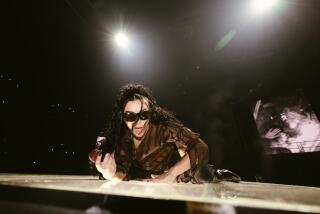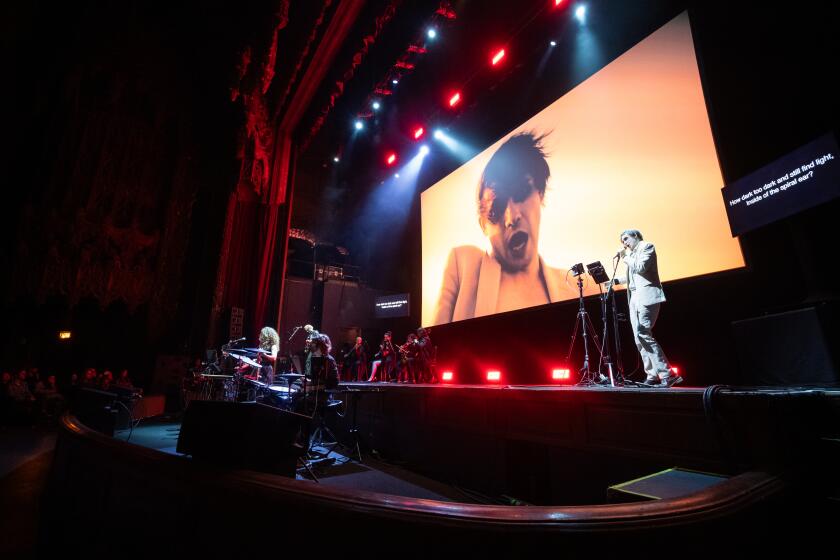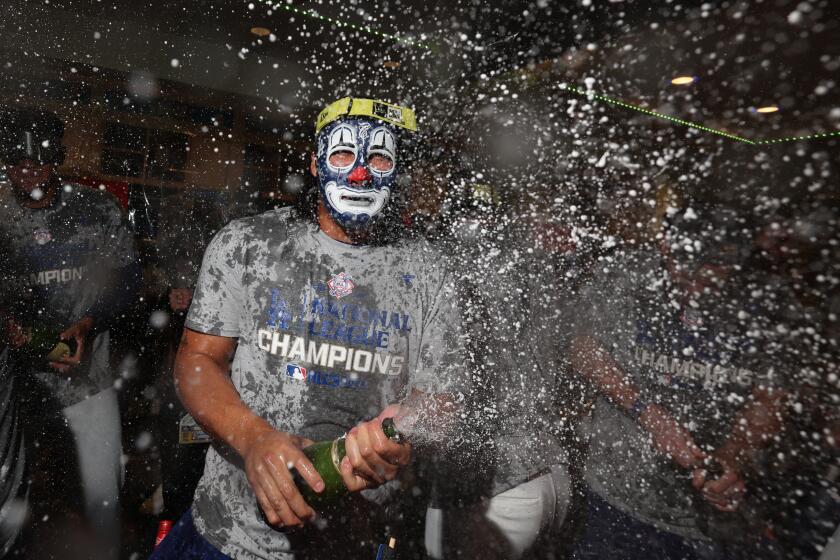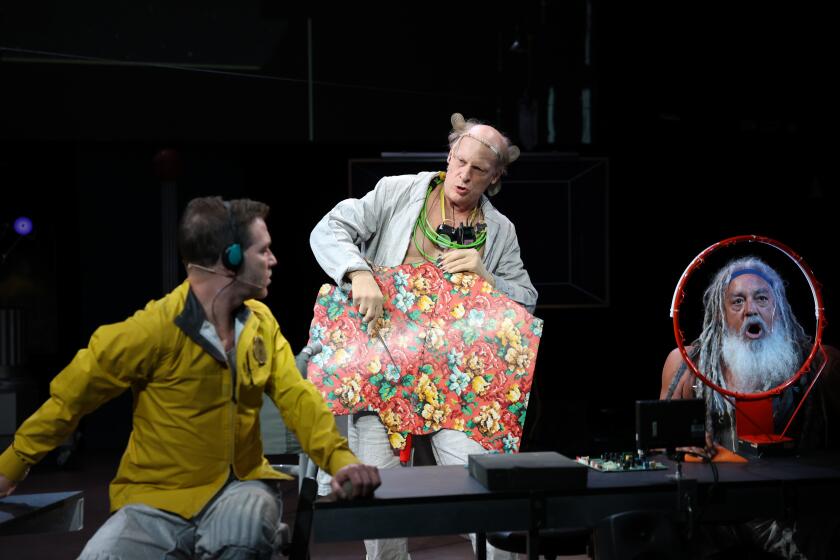Review: ‘(M)iyamoto Is Black Enough’ and then some at the Wallis
Well, that was a surprise!
“(M)iyamoto Is Black Enough” — the first in what will be an ongoing collaboration between the Wallis Annenberg Center for the Performing Arts in Beverly Hills and Brooklyn’s newest and presumably hippest major new music site, National Sawdust — was described in advance materials as well as the program booklet as “a riveting piece about Ariana Miyamoto, the mixed-race winner of Miss Universe Japan 2015.” They got one thing right: It was, indeed, riveting.
But the performance had next to nothing (make that nothing) to do with the Japanese and African American beauty queen or her having to weather “backlash for her lack of ‘pure’ parentage,” which is to say for not having been Japanese enough. In fact, “(M)iyamoto Is Black Enough” turns out to be the name of a band or new music group or something. Not being genre-specific, the foursome can’t yet quite figure out what to otherwise call themselves. They haven’t even managed to come up with names for the pieces they play.
The trailblazing members are poet Roger Bonair-Agard, steelpan player and composer Andy Akiho, jazz and pop drummer Sean Dixon and former Kronos Quartet cellist Jeffrey Zeigler. They started working together in 2015 when Miss Universe was in the news, and because Akiho and Zeigler are half Japanese, “(M)iyamoto” resonated. As for the parentheses, you’ll have to ask them, not that they’re very good at coming up with answers.
Essentially what “(M)iyamoto” does is feature Bonair-Agard reciting his poems while the musicians back him up. The music is by Akiho, much of it written but based on improvisation and a few parts open for group improv. Each member at some point during the 75-minute set gets a solo. There is strong sound design by Garth MacAleavey.
None of that is peculiar. In the free-flowing Brooklyn new music scene, pop and experimental music are no longer distinct. Nor is the addition of poetry anything new. Beat poets and jazz musicians were often on the same stage and in the same groove in the 1950s. A couple of decades later, Allen Ginsberg and Philip Glass made a striking duo working together.
Yet “(M)iyamoto” comes across as absolutely fresh. A good deal of that has to do with the compelling Trinidad-born, Brooklyn-raised Bonair-Agard, who does share certain qualities with Ginsberg. His background, race, experience, influences and languages may all be different. His oracular style of reading has traces of calypso, hip-hop and sermonizing. But the urge toward ecstasy, the spiritual revelation that comes out of uncertainty, the summoning of spirits from ancient traditions capable of elevating his spirit without forsaking the flesh feels newly important.
Where poets have notes, he reminded the audience during a talk back after the performance, poets have vowels. And his vowels resonate with inescapable power as he returns to the mystical core of his Trinidad roots, as he reclaims the black Brooklyn of his youth, as he recounts the meaning of parenthood. (He very sweetly recorded the audience shouting, “Get better, Nina,” on his phone to play for his ill daughter.) Standing there in his red tracksuit and yellow sneakers, he becomes an incarnation of revolt and revitalization. “Be alive, be black, burn, build” is one motto. He tells us that he knows Mozart and he knows Marley. He does.
Not that there’s any Mozart around. Dixon is a driving drummer, and he fuels the poet; his solo, which included using a sampler as a percussion instrument, was a tour de force. Akiho, who has a feel for repetition that doesn’t feel like repetition and who uses his steel drums not only for experimental effects but also to perfume the sonic atmosphere, and Zeigler’s electric cello often stand apart. They bring a lyricism on which Bonair-Agard floats.
All of this, the band notes, is very much a work in progress. They promise to come up with titles when they complete their first recording, now in the works. Each member, moreover, is an artist in his own right with his own significant career. Akiho, for instance, is collaborating with the Industry, Yuval Sharon’s unclassifiable L.A. opera company, for a production of Bertolt Brecht’s “Galileo” to be performed on the beach.
But “(M)iyamoto,” incandescent in its synergy between music and poetry, is already more than good enough.
More to Read
The biggest entertainment stories
Get our big stories about Hollywood, film, television, music, arts, culture and more right in your inbox as soon as they publish.
You may occasionally receive promotional content from the Los Angeles Times.











